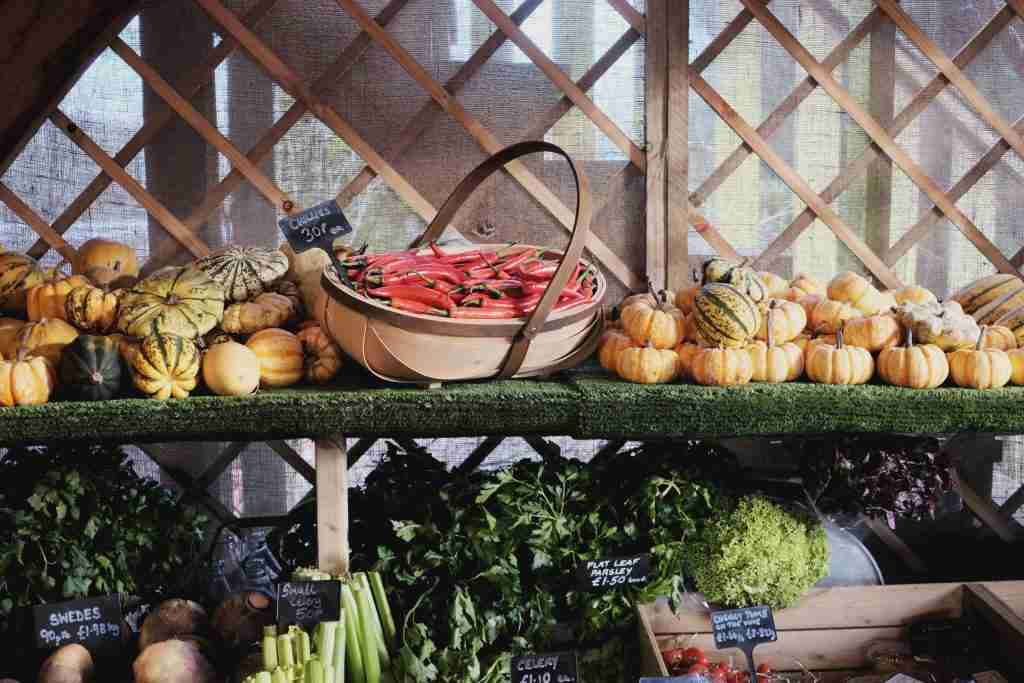Growing up, I always felt wealthy. Even though I knew others owned houses with gardens while my parents and I lived in a bachelor flat. We walked or took the bus while everyone else owned a car. We never went on holiday, except once; and I remember the year – I was about eight – when Santa Claus ‘had very little money’ and I had to write him a letter asking for a very small doll. We posted it in the bright red letter box outside the post office.
Yet I never felt poor or deprived. There was always food on the table and, though my father worked late into the night, trying to maximise his earnings from a job that paid by the hour, we spent the weekends in the big park near our house, walking around looking at the flowers. My father played chess on the enormous chess board with chess pieces as tall as I was and I roamed, exploring, or sitting on a park bench near the fountain watching people stroll by.
We had no television. We read books. We listened to the radio. Occasionally, we went to the movies. Sometimes friends came over to barbeque on our tiny balcony, my father always in a white apron with a glass of whiskey in his hand. Late into the night the merriment would continue, often ending in dance and song. The coffee table would be moved aside, chairs squeezed right against the walls and miraculously there was space enough for couples to waltz and tango or leap high into the air in Cretan dance.
Other children wore designer labels, owned record players and had pocket money, while my mother cut up and edged old sheets and cloths to use for dusting. I longed for a pair of jeans and a decent haircut, but my unruly curls were sheared by my father, who always ensured I had ‘a neat and smooth back and sides’. Still, I never felt poor. “Pocket money?” my father said, “What do you want it for? If you want something you need only ask.” When I thought about it, there was nothing I really needed, it was true.
My father reminded us constantly of our good fortune. We had a roof over our head, plenty of food and many, many outfits. Others were not as lucky, he would say. You could only ever wear one outfit at a time, so two were a luxury. As for my mother who had six, maybe seven dresses…well, that was sheer extravagance. Too many possessions gave you a headache, that’s what my father believed. Not that my father was a stingy man. He was just grateful – rejoicing in the plenty that he felt surrounded him. He was gregarious, a lover of good food and wine. The week was spent planning meals and deliberating choices of menu.
Most of Saturday was spent selecting the right cuts of meat at the butcher, catching the bus to the German delicatessen for salami, or getting a lift to the Greek speciality store for cod roe, or to the small musty olive warehouse where each big wooden barrel would be opened for scrutiny and tasting.
Never was there any sense of the meticulous planning and budgeting that made these purchases possible – though comparisons between the cost (always per kilo) of feta, or Kalamata olives, or red roman from one vendor versus another was a common topic of conversation; as were ‘special offers’ which were always celebrated with the same delight as discovering a pot of gold at the end of a rainbow.
The greengrocer was around the corner and here each perfectly ripe tomato was lovingly embraced, crisp cucumbers had to be firm and voluptuous brinjals the deepest shade of purple were taken home, together with bunches of frilly dill and spring onions.
But first came the savouring. The ritual was always the same. My father would be wearing a suit. He always wore a suit, complete with buttoned down waistcoat, jacket, tie and hat, unless he was relaxing at home. Then the jacket and hat would be omitted – and sometimes the tie – but the waistcoat always remained, always buttoned.
Walking into the grocery store my father would pause, taking it all in with a deep breath, as he swept his glance around the piles of produce with a satisfied smile, extending one arm, as if he owned all that he surveyed. Satisfied, he would nod and approach Mr Silva, the grocery owner, doffing his hat, shaking hands, exchanging greetings, asking after the family and commenting on the weather.
Then the savouring would really begin. First my father would pull out his grocery list- this was a recycled piece of neatly cut envelope, always kept in the inside pocket of his jacket. Then he’d walk around, admiring the produce, commenting on the rosiness of the apples, or the freshness of the lettuce. “Ah, what fine pears,” he would say, lifting one with care, while inhaling its fragrance. Or, “now these are radishes, see how they sound if you gently tap them? No hollow sound. Radishes must never sound hollow.”
He mentally calculated the weight and cost of each item, adding it up in his head as he went along. At the very end he would whisper the total and grin like a school kid when he invariably fell within a few shillings of his estimate and budget. Then he would pull out his wallet and carefully count out the money, always checking what money was left behind. My father prided himself on knowing exactly how much money was in his wallet, ‘to the cent’.
But it was the supermarket that always took his breath away. There, he would stand and marvel, shaking his head. “So much food”, he would say, “look at all these shelves! Do you know that the people in Romania would never believe the existence of such plenty?”
Yes, I always felt wealthy. And I was reminded that good fortune had to be shared with those not so fortunate. Our left-overs were never wasted. Old newspapers went to the hospital. And anyone coming to work in our house, like a painter, or cleaner, was not only assured a decent break for a ‘well deserved rest’, with a hearty lunch and tea provided, but, more often than not, they would be paid a little more than they’d asked for too. “Eh, he also needs to live,” my father would say. “He also has a family. He cannot survive on what he’s charging.”
My mother did not share my father’s sentiments. It was she who reminded us of our true position in life. “Wasteful!” she would say. “Just look at us. What do we have? A small rented apartment, no home of our own, no car, no business and a few rags for clothes. Your father labouring till nine at night on an hourly rate – carving wood is hard manual labour, it’s not like he’s sitting in an office. And for what? So he can pay workers more than they ask for and send money to every poor relative in Romania? So he can show off, pretending he’s a wealthy man, spending what little is left on fancy cheese? Pah!”
Yet my father was never deterred by my mother’s comments. He never believed that he was anything but fortunate. He never grieved the loss of more prosperous pasts – the business he left behind in Greece when he emigrated; the family businesses lost in Rumania when the communists took over.
He never measured himself by what he had never achieved or what he never had, or by the accomplishment of others. He never regretted the choices he had made. He never saw his limited income and the careful budgeting that this necessitated as a restriction. He was never tempted to go into debt.
My father continued to celebrate his wealth and good fortune, even though he never owned a car, or a business – and only very much later, an apartment. By even the most modest of middle class standards my father did not have much. Yet somehow he managed to put the finest of food on the table, wear tailor-made suits, keep a really spotless home, entertain friends, ensure my mother never had to work, put me through school and even buy me a piano and an encyclopaedia.
How he did this on his earnings without debt or credit cards I cannot begin to imagine. And when, later, I needed financial help in my life, it was my father who rose to the occasion.
For many years, once I’d grown up and prospered in my own successful businesses and acquired every clichéd proof of the fact imaginable, I considered my father to be a failure. What did he achieve in life? I would ask myself. He had none of the normal trappings we associate with wealth. But after I’d sold my last business and begun to develop holistic wealth creation courses and write books, I slowly began to see the light.
I have come to realise, that it is my father who gave me the foundations of my approach and who made it possible for me to flourish in the world in the way that I have done. It is my father who taught me that wealth is a feeling and a state of being. It is he who held the doors of possibility open for me, he who helped cultivate the practice of gratitude, simplicity and contentment with having enough.
When he died, his affairs were laid out as neatly as his wallet. Not only had he made provision for medical expenditure and funeral costs, but several hundred thousand I had given him years before was sitting in a bank account and his apartment was fully paid for.
I realise now that the gifts my father gave me far surpassed any financial fortune he could have left me.
- My father never discussed lack; never owned a credit card and never created debt.
- He always paid cash, kept his word and maintained his ethics.
- He constantly celebrated his wealth and good fortune; was always grateful for having ‘more than enough’, and never lost sight of what he had in relation to the majority of those less fortunate in the world.
- He budgeted and kept track of his money playfully, a form of celebration, a virtue and a game.
- He kept life and his needs simple. He always spent less than he earned, kept something aside for a rainy day from every single salary cheque and he always had money in his wallet.
- He believed in miracles and wonders – that anything is possible – one of his favourite sayings being: “What do we know, my child, what do we know?”
- My father taught me that Living Life is more important than creating wealth and that nothing in this world is more important than family and good friends.
Under my biography in my first book Money Alchemy, I write that I have prospered in life despite humble beginnings, that I was raised in a small rented flat by Greek immigrant parents who never owned a car. What I forgot to mention, is that my father was a wealthy man.
Kiki Theo is a wealth expansion author and facilitator dealing with money as energy. She helps individuals and businesses to thrive, drawing on her own successful business experience and gifts as an alchemical intuitive and wealth catalyst. WWW.KIKITHEO-WEALTHWORKS.COM


